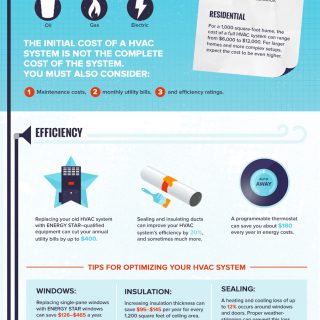The Ultimate Guide To Understanding Heat Pumps - How Do They Work?
The Ultimate Guide To Understanding Heat Pumps - How Do They Work?
Blog Article
Short Article Produced By-Junker Gylling
The most effective heat pumps can save you substantial amounts of cash on power bills. They can likewise help reduce greenhouse gas discharges, especially if you use power instead of nonrenewable fuel sources like lp and home heating oil or electric-resistance furnaces.
Heat pumps function quite the like ac unit do. This makes them a practical choice to typical electrical home heating systems.
Exactly how They Function
Heatpump cool homes in the summertime and, with a little aid from electrical energy or natural gas, they supply a few of your home's home heating in the winter season. They're a good choice for people that wish to minimize their use of fossil fuels however aren't all set to replace their existing heating system and air conditioning system.
They rely on the physical fact that even in air that seems too chilly, there's still energy existing: cozy air is always relocating, and it intends to move into cooler, lower-pressure environments like your home.
The majority of power STAR licensed heat pumps run at near to their heating or cooling ability throughout a lot of the year, lessening on/off cycling and saving power. For the best performance, focus on systems with a high SEER and HSPF ranking.
The Compressor
The heart of the heatpump is the compressor, which is also known as an air compressor. This mechanical streaming gadget uses potential power from power production to raise the pressure of a gas by lowering its volume. It is various from a pump because it just services gases and can not deal with liquids, as pumps do.
Atmospheric air goes into the compressor via an inlet valve. It travels around vane-mounted arms with self-adjusting length that split the inside of the compressor, creating numerous dental caries of varying dimension. The blades's spin forces these cavities to move in and out of phase with each other, compressing the air.
https://docs.google.com/spreadsheets/d/1RCMijeK7K0ksLIXQ7aQ602soOD67UspRjhN5gZVat_Q/edit?usp=drive_link attracts the low-temperature, high-pressure cooling agent vapor from the evaporator and compresses it into the warm, pressurized state of a gas. This process is repeated as required to provide heating or cooling as needed. The compressor additionally includes a desuperheater coil that reuses the waste warm and includes superheat to the refrigerant, changing it from its liquid to vapor state.
The Evaporator
The evaporator in heatpump does the same thing as it carries out in fridges and air conditioning unit, transforming liquid cooling agent into an aeriform vapor that gets rid of warmth from the area. Heatpump systems would not function without this important tool.
This part of the system lies inside your home or building in an interior air trainer, which can be either a ducted or ductless device. It includes an evaporator coil and the compressor that compresses the low-pressure vapor from the evaporator to high pressure gas.
Heat pumps soak up ambient warmth from the air, and then use electrical energy to move that warm to a home or organization in heating setting. That makes them a great deal much more energy reliable than electrical heaters or heaters, and since they're making use of clean electrical power from the grid (and not burning gas), they also generate much fewer exhausts. That's why heat pumps are such fantastic ecological options. (In addition to a significant reason why they're becoming so prominent.).
https://www.globenewswire.com/news-release/2020/04/16/2017081/0/en/U-S-HVAC-Services-Industry-Forecast-to-2030-A-35-Billion-Opportunity-Assessment.html .
Heatpump are great choices for homes in cool climates, and you can use them in combination with standard duct-based systems and even go ductless. They're a wonderful alternate to fossil fuel heating unit or conventional electrical heating systems, and they're extra sustainable than oil, gas or nuclear a/c equipment.
Your thermostat is the most essential component of your heatpump system, and it functions extremely in a different way than a conventional thermostat. All mechanical thermostats (all non-electronic ones) work by using substances that transform dimension with boosting temperature level, like coiled bimetallic strips or the broadening wax in a car radiator valve.
These strips contain 2 various sorts of metal, and they're bolted together to develop a bridge that completes an electric circuit attached to your heating and cooling system. As the strip gets warmer, one side of the bridge expands faster than the various other, which causes it to flex and indicate that the heating unit is needed. When the heat pump is in home heating setting, the reversing shutoff reverses the flow of cooling agent, to ensure that the outdoors coil now functions as an evaporator and the interior cyndrical tube comes to be a condenser.